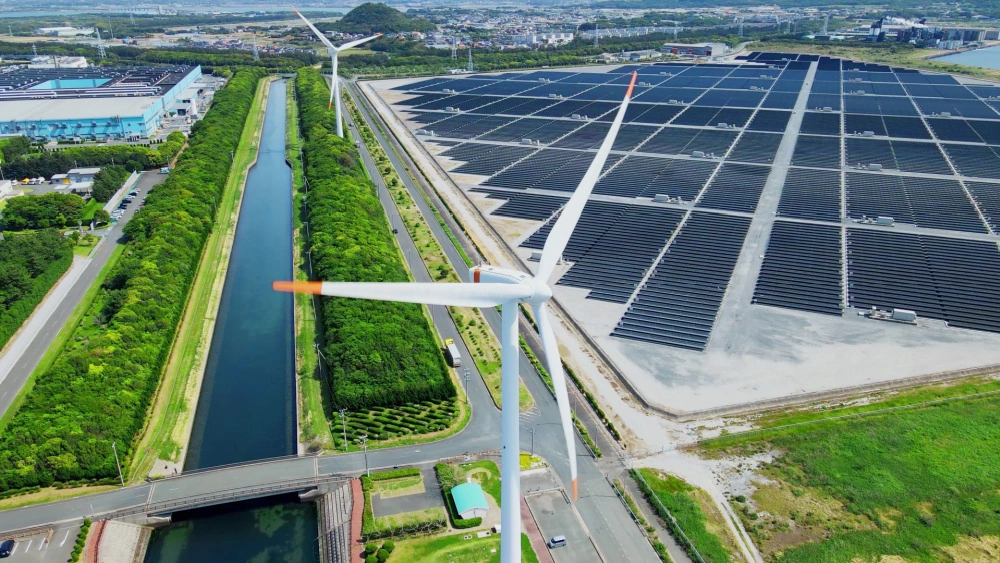
ESOS Amendment Regulations 2023: what has changed?


What is the Energy Savings Opportunity Scheme?
The Energy Savings Opportunity Scheme (ESOS) requires certain organisations in the UK to conduct mandatory energy savings assessments and comply with a certain framework in doing so.
ESOS has been in force since 2014, through the Energy Savings Opportunity Scheme Regulations 2014 (SI 2014/1643) (ESOS Regulations). These have been amended on 27 November 2023 by the Energy Savings Opportunity Scheme (Amendment) Regulations 2023 (SI 2023/1182) (ESOS Amendment Regulations).
The amendments are applicable to the next phases of the scheme in the compliance years 2023 (Phase 3), and 2027 (Phase 4), with later phases of the scheme subject to further consultation and regulations.
Why the Amendment Regulations 2023?
ESOS has shown itself an important tool for the government to preserve energy security and move towards net-zero, and as a result has been on the reform agenda in recent years. The reforms to Amendment Regulations also represent an attempt to bring EU-derived legislation "onshore" in advance of the December 2023 "sunset" date by which all retained EU law is due to automatically expire pursuant to the Retained EU Law Act 2023.
The Energy Act 2023, enacted on 26 October 2023, brought, and strengthened regulatory powers around ESOS in domestic statute. These powers were previously in domestic law by way of the European Communities Act 1972.
As a result, the ESOS Amendment Regulations were made. The reforms broadly follow those proposed in a public consultation by the then named Department of Business Energy and Industrial Strategy (BEIS) which ran between 2021 and 2022. BEIS recommended enhancing audit and reporting requirements for qualifying undertakings, improving implementation of ESOS recommendations, and ensuring that these are consistent with the UK's climate change commitments.
Does my organisation qualify for ESOS?
The scope of ESOS remains the same: an organisation is caught under the scheme if it is a large UK undertaking and its corporate groups. A large undertaking is a company in the UK which meets at least one of the following criteria:
- It employs 250 people or more.
- It has a turnover in excess of £44 million and it has an annual balance sheet total in excess of £38 million.
If the participant is a corporate group, the default position, unless otherwise agreed in accordance with the regulations, is that the "responsible undertaking" is the highest UK parent and is responsible for compliance of the entire group.
A large undertaking is not only private sector companies. Whilst the public sector is exempt from the scheme, charities and other not-for -profit organisations may need to comply with the scheme where they fall under the qualifying criteria.
Amendment Regulations 2023 - what has changed?
The Amendment Regulations have introduced a number of changes to ESOS, which are intended to make the scheme more effective. Amongst other things, the amendments include:
Extension of the compliance date applicable for Phase 3 by 6 months, to 5 June 2024, where this relates to compliance with ISO 50001 (Regulation 33), Display Energy Certificates and Green Deal Assessments (Regulation 34). The Phase 3 compliance date for all other Phase 3 obligations remains the same, set at 5 December 2023.
Under the ESOS Regulations, qualifying undertakings are entitled to apply the audit to their “significant energy consumption” and to exempt “de minimis” energy consumption from the audit. The ESOS Amendment Regulations vary the position, raising the proportion of total energy consumption to 95% from 90%. In turn, this restricts the application of the “de minimis” exemption, which only applies to 5% of total energy consumption.
Responsible undertakings are required to specify from their energy consumption, the proportions relating to an organisational purpose, i.e. transport, industrial processes, buildings and other.
Responsible undertakings are required to measure energy intensity ratio for those organisational purposes. This is calculated by reference to assets held and activities carried out.
Where total energy consumption has not been measured in kWh, it must be converted into kWh. The calculation must be based on verifiable data and based on a reasonable estimate of the amount of energy consumed in kWh.
The threshold to appoint a lead assessor is 40,000 kWh energy.
There is a new requirement for responsible undertakings to conduct site visits at sites which are considered by the undertaking to be representative of energy consumption in respect of an organisational purpose, either by assets held or activities carried on.
Record keeping requirements are enhanced. Responsible undertakings are required to keep records of the energy audit including: the 12-month period to which the energy audit relates; areas of significant energy consumption and consumption by those areas; site visits conducted and explanation of why those sites were considered representative of energy consumption during applicable period; reasons why, if verifiable data was not available for the 12-month applicable period, any other verifiable data has been used evidencing either consumption over a shorter period or a reasonable estimate of consumption over the 12 month period.
A responsible undertaking will now be required to recommend a programme for implementation of energy saving opportunities. Responsible undertakings will need to identify:
-
- The organisational purpose and energy saving category to which the energy saving opportunity most closely relates.
- Any considerations relevant to the implementation of the energy savings opportunity including obligations under Part 3 of the Energy Efficiency (Private Rented Property) (England and Wales) Regulations 2015, and information on any schemes under which grants or public funds are available to support implementation of the opportunity.
- The costs and benefits of implementation (both financial and non-financial).
- An estimate of the annual reduction in energy consumption achieved as a result of implementing the energy saving opportunity.
- The payback period for the energy saving opportunity.
The Amendment Regulations introduce a new requirement for responsible undertakings to keep a written record of the energy audit conducted by the undertaking in a formal “ESOS Report”. The ESOS Report must include, amongst other things, the following information in relation to the applicable period:
-
- The participant’s total energy consumption.
- The participant’s significant energy consumption, expressed in kWh, and the percentage it comprises of the total energy consumption.
- Energy intensity ratios.
- Estimate of energy savings achieved by the participant.
- Estimates for energy consumption in relation to each organisational purpose and each energy savings category.
Participants will now need to provide an estimate of energy savings achieved by the participant during the compliance period, starting immediately after the previous compliance date and ending on the actual compliance date. The estimate must include the proportion of energy savings for each organisational purpose.
Comment
The Energy Act 2023 provides the Secretary of State with a broad discretion to make ESOS regulations which may include provisions around methodology, the responsibilities of the authorities measuring energy assessment, carbon footprint and implementation. The Amendment Regulations represent the first exercise of such powers.
Through the Amendment Regulations, the government aims to strengthen standards for ESOS, improve the quality of ESOS audits, incorporate net-zero and climate commitments audits and enhance accountability through public disclosure of ESOS data.
As a result, if your organisation qualifies for ESOS, you will need to comply with enhanced audit and reporting requirements.
Foot Anstey will continue to monitor the ESOS requirements. If you wish to understand how this will impact your organisation, please contact Christian Silk and Sophie Jacobs.










